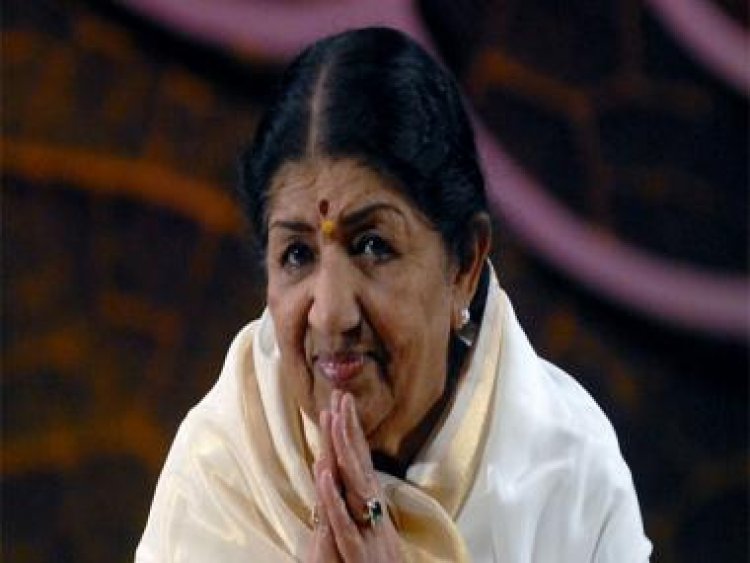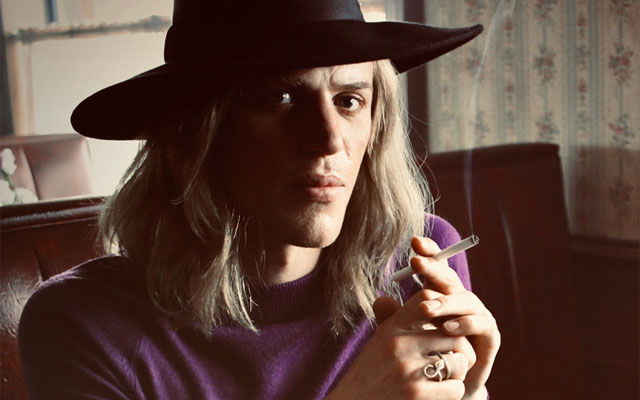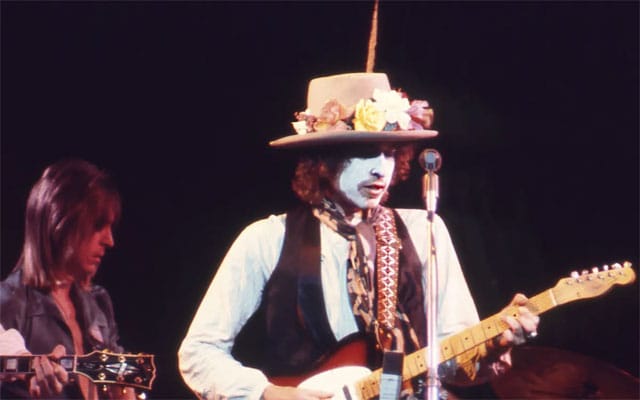First Take: A Lata Mangeshkar biopic is required, but look at what they did to legendary musicians in the west
First Take: A Lata Mangeshkar biopic is required, but look at what they did to legendary musicians in the west

To say Elvis Presley deserved better than the film Elvis would be an understatement. Baz Luhrmann, who never believes in understatement, goes at Elvis’ stereotypical Rock Star image with hammers and thongs, creating what is possibly the worst biopic ever on an iconic musician. And we are counting horror shows like Bohemian Rhapsody (the Freddy Mercury biopic) and Rocketman (the Elton John biopic).

Both suddenly seem like instant classics when compared with Elvis.
Elvis The Pelvis, as he was known, was a babyfaced sex machine. Girls apparently experienced unmentionable emotions when Presley was on stage. Every thrust of his pelvis sent them into a sexual swoon. Every word he belted out on stage sounded like an invitation for sex.
We get all of this in the film. But not in any ‘process-able’ way. All we see is all we get in the film. The movements do not suggest an afterlife, a thrust beyond the thrusts, so to speak. Austin Butler as Presley is not only problematic, he is also a huge hindrance to the story’s efficacy.
At times, Butler seems restricted by the need o “be’ Elvis. This entails a lot of mimicry, especially on stage where the heaves and thrust, the twirls and flips, seem copied after closely studying film footage of the original. This is a very look-Ma-no-hands kind of showoff performance.
As far as the murder of the screen Elvis is concerned, the Butler definitely did it. There are even more serious problems in this epic misfire. The most fatal error is to pitch Elvis’s story in sync with his corrupt sneaky manager. I must say Tom Hanks’ makeup as Elvis’s evil manager Tom Parker is unerringly spot-on.
In a film that doesn’t seem to get anything right, Tom’s Tom is something to tom-tom about. Having said that, there is little credibility in the characters’ cheesy machinations. Tom misguides cheats and embezzles….yawn! Tell us another. Why are musical stars’ almost always trapped in business relations with shady managers? We would need a full thesis on that subject.
As Tom Hanks’ struggles with a cardboard villainous role, the film has other more immediate problems to attend to. The mood of the movement in the narration is spasmodic, uneasily psychedelic. It’s as if every actor and technician is under the influence just to experience what Elvis went through.
A drug-induced haze colours nearly every relationship that Elvis experiences. Not that his manager allows him to get into any zone except the trite jingly stage songs which drive the girls(and the Establishment) nuts. By the time Elvis sacks his manager it is too late….Too late for Elvis and for this film to seek remedial measures.
It’s not all a washout, though. I liked the portions showing Elvis fraternizing with Black musicians. It’s the only time Elvis is himself, freeing himself from director Baz Luhrman’s expansionist epic excursion, and from the clammy clutches of the actor who plays him.
Elvis’s love for his alcoholic mother Gladys(played well by Helen Thomson) comes through the smoky haze of sex drugs alcohol that director Baz Luhrmann builds around Elvis. Was Elvis Presley really this babyfaced Justin Bieber of the 1950 and 60s? I think this biopic misses the point by a wide margin. It stays at the shallow end of Elvis’ life not daring to probe any further. This is a pity since we were all waiting to see what the real Presley was like. This one is like the hundreds of Presley impersonators rather than the real thing.
Gabrielle Range’s Stardust is David Bowie’s worst nightmare come true. The worst disservice to a celebrity figure is a substandard bio-pic. If you’ve seen Rajkumar Hirani’s Sanju, you will know what I mean. Stardust is just one of a trio of recent bio-pics on British bi-sexual rock-pop icons, that falls flat on its face even while negotiating rocky craggy pathways in trying to get to the core of the icon.

Well, if Stardust is to be believed then David Bowie for all his flashy androgynous clothes and acts, was a bore at his core. The film slices off one episode from Bowie’s life with a blunt knife that leaves many uneven edges in the storytelling canvas. Who was David Bowie? At the end of the film he remains as much a mystery as Freddy Mercury in Bohemian Rhapsody and Taron Egerton in Rocketman.
What made the music of these three rock legends such monumental musical thrusts into eternity, so enduring and popular that even today, their songs play in our heads and beds? For all the disappointment, at least the bio-pics on Freddy Mercury Bohemian Rhapsody and Elton John Rocket Man had the original music and songs for us to singalong even when the storytelling got heavyhanded.
In Stardust, no original song of David Bowie has been used. Bowie’s family didn’t allow it. Perhaps they sensed what a mess this bio-pic was going to be. More than Bowie and his transformation to his twin personality Ziggy Stardust, this bio-pic focuses on how dreadfully unsuccessful Bowie’s first trip to the US was.
Bowie’s entire US experience from being made to put up in his US manager’s guest room to having to perform at private events where no one listened(why should they, when they were not even getting the original Bowie songs!) make David Bowie look like a horrid loser, a rock wannabe who doesn’t know where to fit in. Without a context or a connection, the episode of his frustrations and failures in the US do Bowie more disservice than a bio-pic is meant to.
Jena Malone as Bowie’s long-suffering wife is a portrait of a messy marital liaison. As for the British actor Johnny Flynn as Bowie, he tries hard. But without the original’s zing sting or songs Flynn is caught on the wrong foot. Marc Maron as Bowie’s manager fares better.We are better able to access the manager’s frustrations than Bowie’s. And that is truly tragic.
Rolling Thunder Revue: A Bob Dylan Story by Martin Scorsese (Netflix) does unbearable disservice to the legendary Dylan. Here is a question I never thought would arise for a film by the great Martin Scorsese. Why was this documentary on a well-known concert tour by the legendary Bob Dylan, made? For the love of Dylan? Or for the love of Dylan’s massive fan-following?

At the risk of sounding blasphemous, I must confess I’ve never understood what Bob Dylan sings. Except for the track Blowing In The Wind, I am yet to decode what Upon four-legged forest clouds… The cowboy angel rides’ and ‘He just smoked my eyelids…And punched my cigarette’ means. Those who have the answer, please share.
The Scorsese documentary made Dylan even more inaccessible for me. It conjures up a collage of frames and images shot during the 1975 Dylan concerts, when something monstrously relevant was said to be happening to American politics (Nixon was the cause of friction) and juxtaposes them with fictional material that probably—mind you, PROBABLY—reflects what went on inside that Nobel prize-winning mind while America churned .
The Dylan we see in this film is inscrutable and obstinate, unyielding and opinionated. The images of Dylan on stage and Dylan backstage don’t speak to me at all. They tell me nothing about his personality. There is a lengthy conversation between Dylan and the love of his life Joan Baez. I listened to it twice in the hope of a clue to the great genius’ mind. But hell, this genius even speaks his normal conversations like the lyrics of a song. Which means, essentially we are clueless. The answer, my friend, may be blowing in the wind. But it ain’t reaching my mind. Sorry.
Besides the sheer randomness of the material (I mean, does anyone care what happened during a series of Dylan concerts in 1975?) the other big obstacle to enjoying this piece of enigmatic inanity is the sheer incoherence of the opinions expressed. The show managers and co-musicians who speak about Dylan express awe. But there is no real love in that tone of hero-worship.
Is Dylan really as great an artiste as he’s made out to be? This documentary offers no clues.I came away as confused by the purpose of this film, as I am by Dylan’s lyrics. I wouldn’t recommend it to even diehard Dylan devotees.
Unjoo Moon’s I Am Woman is a special biopic on a very special musician. Let me confess to a bias. I love Helen Reddy’s songs, not just the anthemic ‘I Am Woman’ but all her hits that I grew up humming along with that enchantingly rasping voice. To my generation, Helen Reddy is THE WOMAN.I waited for her bio-pic and I am happy to say it lives up to all expectations. Helen Reddy epitomized the woman’s voice in the rock n roll movement at a time women when were welcomed into the Billboards chart only if they wore leather jackets and spiked boots.

Helen Reddy arrived in New York from Australia with just her little daughter and big dreams. This is the story of her rise to supreme fame, her iconic position in the world of pop music after she sang her way into the halls of fame and feminism with the anthemic ‘I Am Woman’
Happily this film is much more than a pretext to play that evergreen song on the screen . It is a mirror of the prejudices women in the 1970s and 80s handled in the male-dominated music industry of America. When Helen Reddy (played superbly by Tilda Cobham-Hervey) lands at a music producer’s office, the casually sexist attitude is put forward with an exasperating exactitude.
When she tells him she is divorced the dickhead drawls, ‘What happened, Honey. He forgot your birthday?’
But this is not film flashing badges of seething sisterhood.
Rather than torpedo the narrative with marching tropes, I Am Woman focuses on the woman’s struggle to make her voice heard, in more ways than one. As Helen’s guide manager and partner Jeff Wald who eventually betrays her trust , actor Evan Peters reminded me of Dev Anand in Vijay Anand’s Guide. Yes, he uses her. But then, so does she.
Besides Helen Reddy, played with a looming luminescence by Tilda Cobham-Hervey, there are only two other principal characters in the film, the third being her friend journalist Lilian Roxan (Danielle Macdonald) whom Helen betrays out of a misplaced feeling of professional distrust.
For those who grew up with the voice of Helen Reddy I Am Woman is more than a well-made bio-pic. Its all-encompassing humanism and the applause –worthy rendering of Reddy’s popular songs had me clapping and singing. Even as a bio-pic about a woman who claws her way out of perennial patriarchal prejudices I Am Woman –to borrow phrase from the song—is strong, invincible…
Subhash K Jha is a Patna-based film critic who has been writing about Bollywood for long enough to know the industry inside out. He tweets at @SubhashK_Jha.
Read all the Latest News, Trending News, Cricket News, Bollywood News, India News and Entertainment News here. Follow us on Facebook, Twitter and Instagram.
What's Your Reaction?



























































